

— Products —
 Consumer hotline +8618073152920
Consumer hotline +8618073152920 WhatsApp:+8615367865107
Address:Room 102, District D, Houhu Industrial Park, Yuelu District, Changsha City, Hunan Province, China
All products
Soil Moisture Sensors for Agriculture is a specialized sensor device used in the field of agriculture, which is mainly used to monitor the moisture content in the soil. Soil Moisture Sensors for Agriculture are very important for agricultural production management. These sensors help farmers and agricultural technologists to understand the soil moisture condition so that they can optimize irrigation schedules, increase crop yields, conserve water, and reduce environmental pol···
Tel/WhatsApp:+8615367865107
Email:Arvin@niubol.com +Nearly 100 partner company in more than 68 countries. We are committed to providing high-quality, practical products to meet your needs and help you solve problems.Product Details
Soil Moisture Sensors for Agriculture Introduction
Soil Moisture Sensors for Agriculture is a specialized sensor device used in the field of agriculture, which is mainly used to monitor the moisture content in the soil. Soil Moisture Sensors for Agriculture are very important for agricultural production management. These sensors help farmers and agricultural technologists to understand the soil moisture condition so that they can optimize irrigation schedules, increase crop yields, conserve water, and reduce environmental pollution.
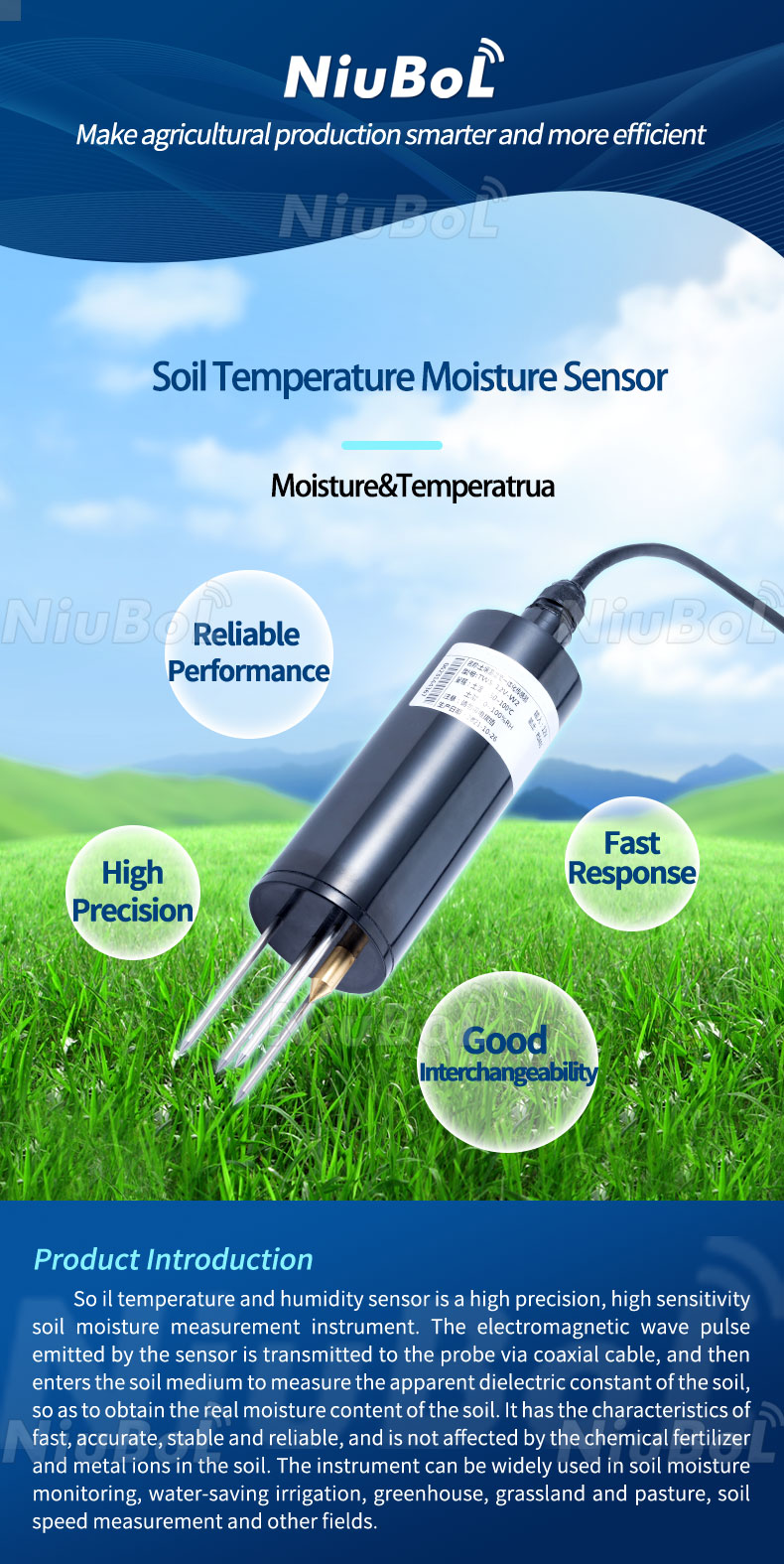
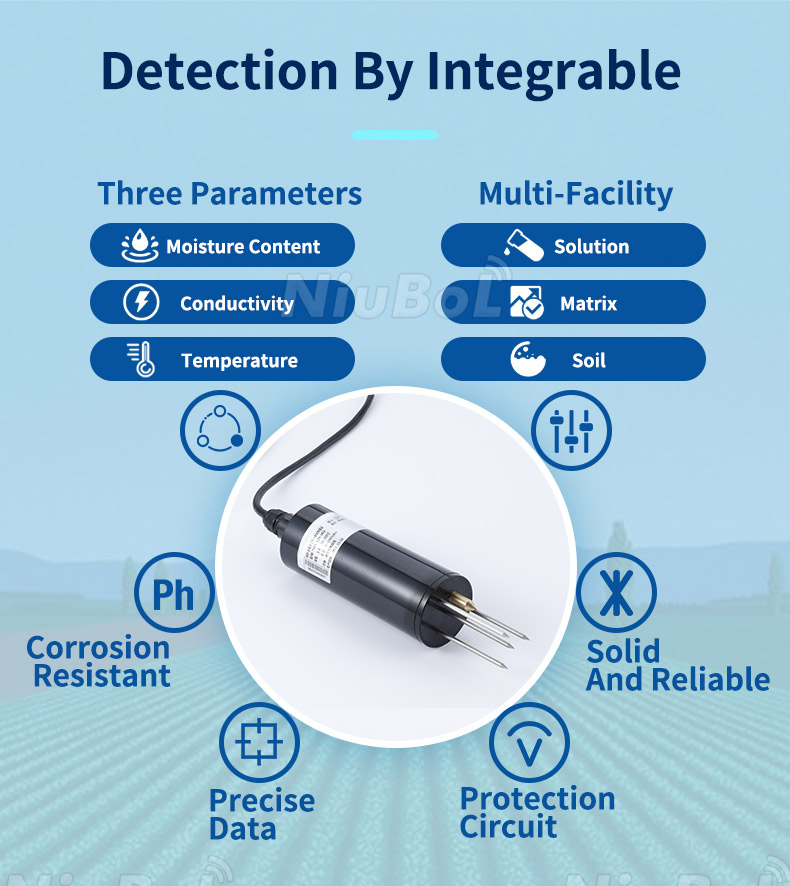
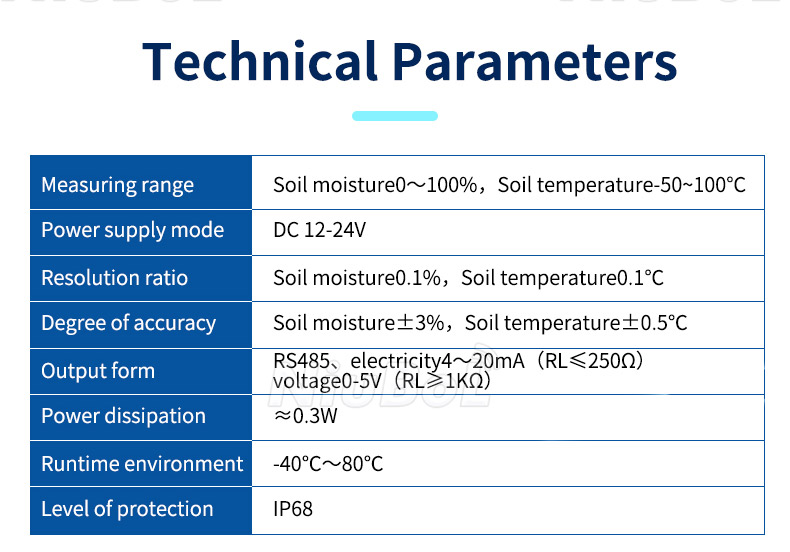
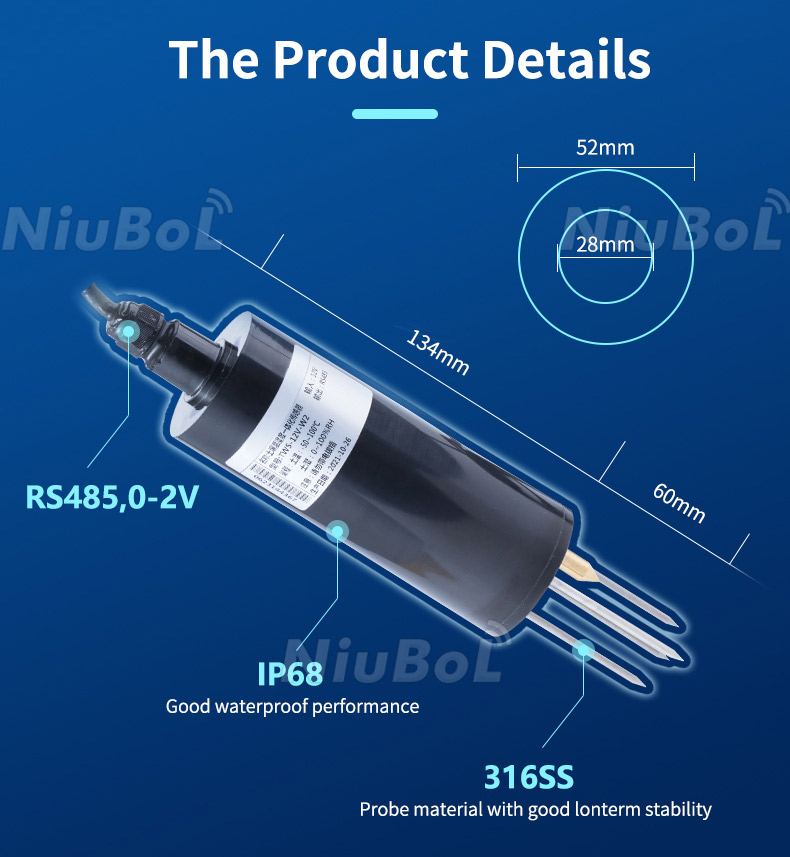
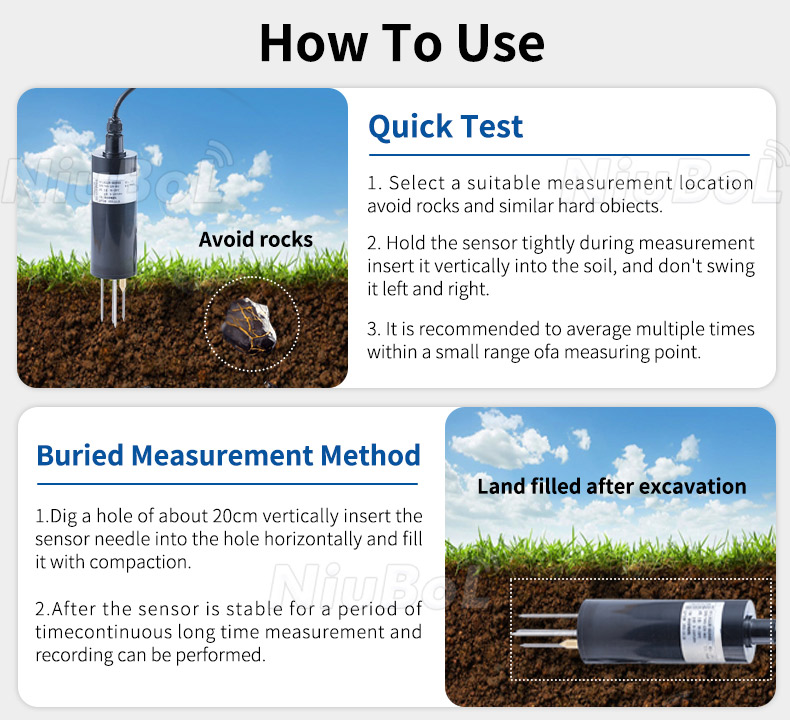
Features of soil moisture sensors for agriculture
1. High precision measurement: soil moisture sensors for agriculture can accurately measure the moisture content in the soil, providing reliable data support for agricultural production.
2. Waterproof and corrosion resistance: The sensor surface is gold-plated for waterproof performance and can maintain stable performance in acid and alkaline soil.
3. Long-term stability: these sensors can be buried in the soil for a long time, and carry out fixed-point monitoring and online measurement of moisture in surface and deep soil.
4. Easy to install and maintain: Soil moisture sensors are designed to be simple and easy to install and replace.
The following are some common types of soil moisture sensors and their characteristics and application scenarios:
1. Capacitive Soil Moisture Sensors (Capacitive Soil Moisture Sensors):
Characteristics: Soil moisture is estimated by measuring the change in soil-to-capacitance. These sensors are usually insensitive to changes in soil type and can be used to monitor different types of soil moisture.
Application scenarios: Suitable for a wide range of agricultural applications including irrigation management, crop monitoring and long-term studies of soil moisture changes.
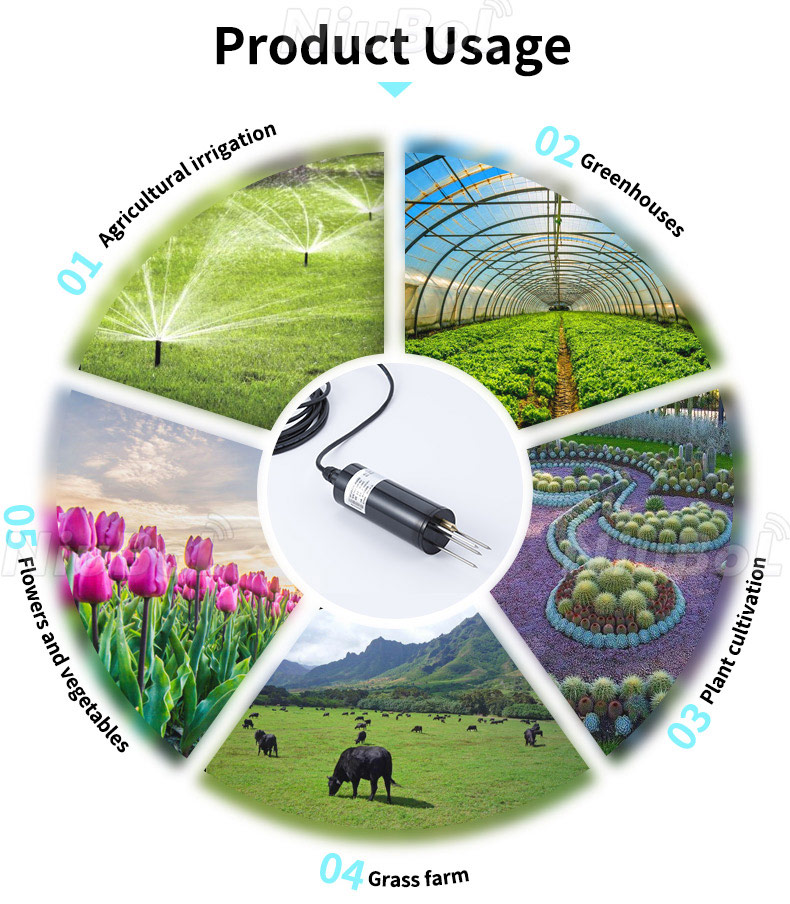
2. Resistive Soil Moisture Sensors (Resistive Soil Moisture Sensors):
Characteristics: Soil moisture is inferred by measuring the electrical resistance of the soil. These sensors are usually sensitive to changes in soil type and structure.
Application Scenario: Suitable for specific soil types, such as sandy or clayey soils, and where more accurate moisture monitoring is required.
3. Frequency Domain Reflectometry Soil Moisture Sensors:
Characteristics: Utilizing frequency domain reflection technology, soil moisture is estimated by measuring the reflection of electromagnetic waves from the soil. These sensors can provide more accurate soil moisture readings.
Application Scenario: Suitable for applications that require high precision soil moisture monitoring, such as precision agriculture and scientific research.
Application Scenarios of Soil Moisture Sensors for Agriculture
1. Water-saving irrigation: Through real-time monitoring of soil moisture, farmers can accurately irrigate crops according to their actual water demand, thus saving water and increasing crop yields.
2. Greenhouse: In greenhouses, soil moisture sensors can help farmers grasp the growing environment of crops and provide suitable water conditions for crops.
3. Plant Cultivation: In the process of plant cultivation, soil moisture sensors can help researchers to understand the growth of plants under different humidity conditions and provide scientific basis for plant cultivation.
4. Farmland moisture monitoring: Used in conjunction with data collectors, soil moisture sensors can be used as a tool for farmland moisture monitoring, providing real-time and accurate data support for agricultural production.
5. Research:Soil moisture sensors are valuable tools for agricultural researchers to study plant water relations, soil hydrology and the impact of climate change on crop productivity.
In conclusion, soil moisture sensors for agriculture have a wide range of application prospects in the fields of water-saving irrigation, greenhouse greenhouse, plant culture and farmland moisture monitoring, and are an indispensable and important tool in modern agricultural production.
NBL-S-THR-Soil-temperature-and-moisture-sensors-Instruction-Manual-V4.0.pdf
NBL-S-TMC-Soil-temperature-and-moisture-conductivity-sensor.pdf
Sensors & Weather Stations Catalog
Agriculture Sensors and Weather Stations Catalog-NiuBoL.pdf
Weather Stations Catalog-NiuBoL.pdf
Related recommendations
 Multi-Depth Soil Sensor RS485
Multi-Depth Soil Sensor RS485 TDR Soil Moisture Sensor
TDR Soil Moisture Sensor Pyranometer Solar Radiation Sensors
Pyranometer Solar Radiation Sensors Soil ph sensor
Soil ph sensor Tipping Bucket Rain Gauge
Tipping Bucket Rain Gauge Air Temperature and Humidity Sensor
Air Temperature and Humidity Sensor
Screenshot, WhatsApp to identify the QR code
WhatsApp number:+8615367865107
(Click on WhatsApp to copy and add friends)
